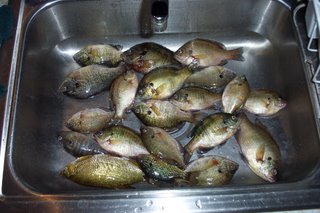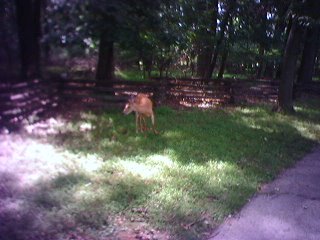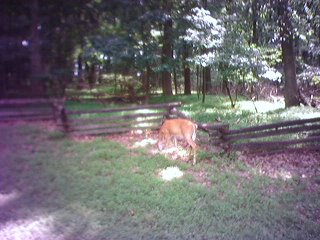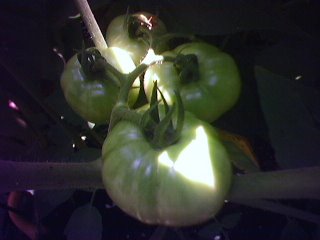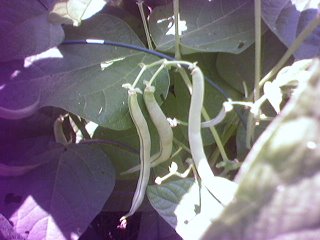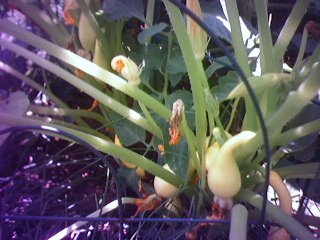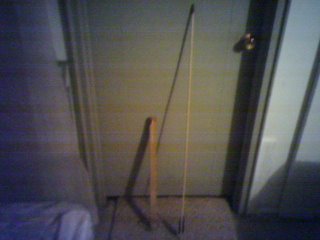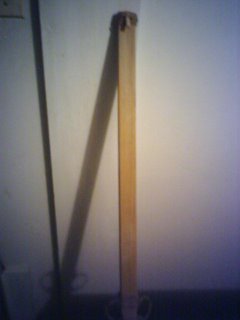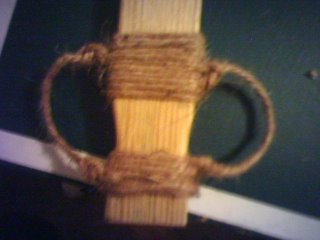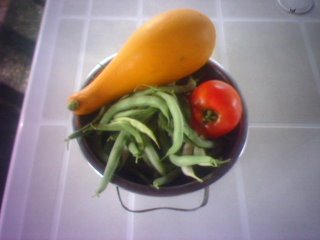
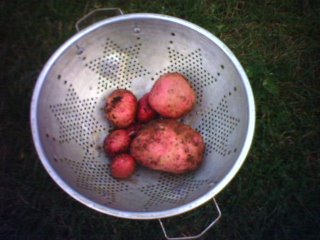
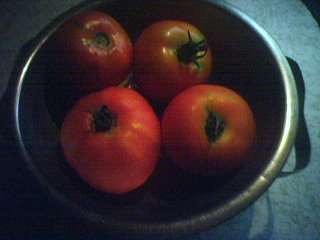
I've harvested the last batch of potatoes and several of the ripe tomatoes. The final count is 20 pounds of potatoes harvested from roughly half a square meter of land. With the buds harvested, the soil must be rested. Thus I used the containers for the potatoes as makeshift compost bins.
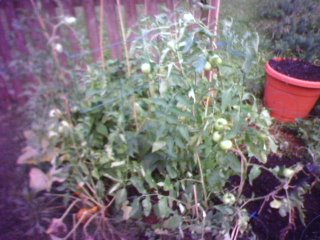
First, the bins were cleared out except for the bottom layer of rocks to serve as drainage. Then a layer of used soil 3 inches deep was packed onto the layer of rocks. The used stalks and stems of the potatoe plant was cut into small pieces and mixed with other scraps of weeds and clovers that were growing around the garden. This fresh biomass was layered on top of the used soil.
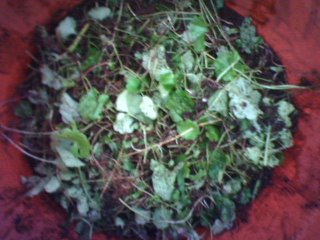
On top of this layer was packed another layer of partially decomposed grass clippings that I had packed near the edge of our backyard fence. Basically, grass clippings that are left after the lawn is mowed are usually collected in bags and thrown away by the neighbors. But this year, I collected a dozen bags of this "garbage" and packed them neatly against the side of our backyard fence beneath the hedges. Over the course of months, the layers of grass decomposed into this fine blackish/brown mass of organic material. I applied 4 inches of the decomposing grass clippings to the fresh biomass.
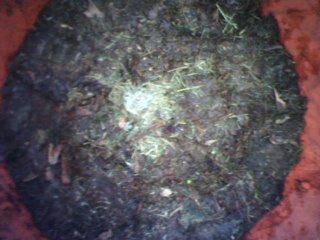
On top of the layer of decomposing material was applied another layer of farmed soil, another layer of fresh plant materials was applied on top of that and so on until both bins were packed to the brim. At this point I added liters of water to both bins and the rest of the work will be done by the earthworms and bacteria. Essentially, the earth worms living within the farmed soil layer will eat it's way through the fresh vegetation layer, mixing the soil and it's own excrement through the motions of it's own body. Thus, living between the 2 layers, the earth worms will eventually convert all the fresh vegetation into a mixture of soil and excrement. From the other side, the decomposing layer contains millions of anerobic bacteria that breaks down the rotting vegetation into a mixture of nitrates, phosphates, and methane. As the bacteria eats it's way through the decomposing layer, it'll encouter the churned-up soil/excrement mixture created by the earth worms, the bacterial will actuall process the excrement of the fresh vegetation far more quickly than if there only vegetation with no earthworks. Through this process, the nutrients of the dead vegetation is quickly released into the farmed out soil and mixed thoroughly by the worms. The methane released heats up the entire bin and kills off many species of harmful parasites living within the soil. Within 6 months, the 2 bins will generate over 80 lbs of high-quality compost soil that will serves as efficient organic fertilizers, just in time for next years gardening activities.
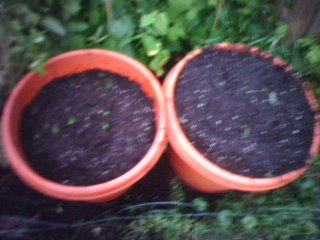
In this manner, the 20lbs of biomass that is taken out of the soil as potatoes is put back into the soil as 20 lbs of decomposing grass, and freshly killed weeds. Nothing is wasted, everything is recycled. Effectively, there is no concept of garbage within this closed system. Contrasting this with our modern system of food production and waste disposal, a great disparity can be seen. We're coverting our finite supply of oil and natural gas into synthetic fertilizers and then into food. We consume that food and the organic "waste" that we produce are flushed into rivers where it eventually ends up flowing into the ocean. While doing all of this, we're using the same finite supply fossil fuels to make pesticides which simply kills everything in the soil and leaves it a bare growing medium which is unable to sustain natural means of food production.
